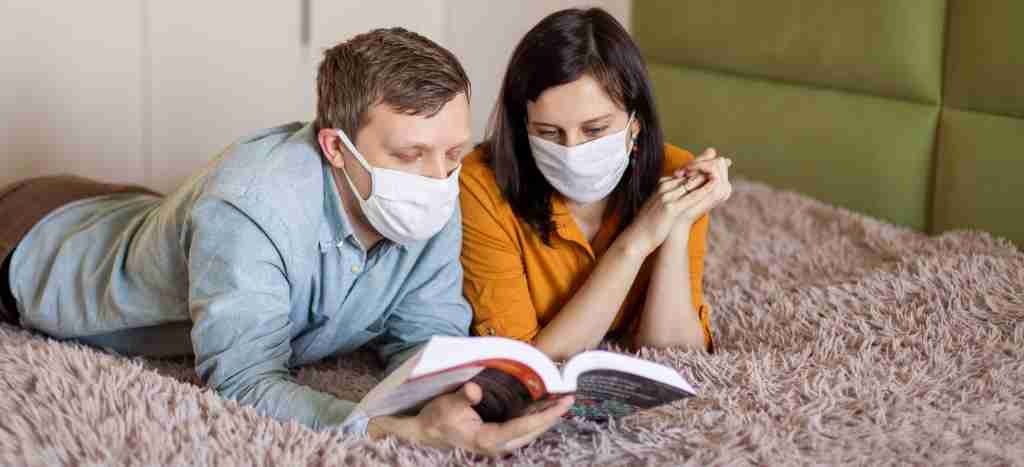Self-isolationself-isolation self-iso·la·tion | \ ˌself-ˌī-sə-ˈlā-shən : the act of isolating or separating oneself or itself from others. is voluntary isolation at home by those who have or are likely to have COVID-19COVID-19 \ ˈkō-vid-nīn-ˈtēn : a mild to severe respiratory illness that is caused by a coronavirus (Severe acute respiratory syndrome coronavirus 2 of the genus Betacoronavirus), is transmitted chiefly by contact with infectious material (such as respiratory droplets), and is characterized especially by fever, cough, and shortness of breath and may progress to pneumonia and respiratory failure. and are experiencing mild symptoms of the disease (in contrast to those who are severely ill and may be isolated in a hospital). The purpose of self-isolation is to prevent spread of infectioninfection in·fec·tion | \ in-ˈfek-shən a : the state produced by the establishment of one or more pathogenic agents (such as a bacteria, protozoans, or viruses) in or on the body of a suitable host b : a disease resulting from infection from an infected person to others who are not infected. If possible, the decision to isolate should be based on physician recommendation.
If you are caring for someone in your household who has COVID-19, consider staying in a separate room and take other precautions necessary to avoid contracting the highly contagious virusvirus vi·rus | \ ˈvī-rəs : a disease-causing agent that is too tiny to be seen by the ordinary microscope, that may be a living organism or may be a very special kind of protein molecule, and that can only multiply when inside the cell of an organism .
When to Self-Isolate
It may be reasonable to isolate yourself in a number of circumstances, whether or not you are presenting symptoms consistent with COVID-19.
- If you have tested positive for COVID-19.
- If you have been exposed to the new coronaviruscoronavirus co·ro·na·vi·rus : any of a family (Coronaviridae) of single-stranded RNA viruses that have a lipid envelope studded with club-shaped projections, infect birds and many mammals including humans, and include the causative agents of MERS, SARS, and COVID-19 and are experiencing symptoms consistent with COVID-19 (fever, cough, difficulty breathing), whether or not you have been tested.
- You should strongly consider self-isolation if you have been tested for COVID-19 and are awaiting test results.
- You may also consider self-isolation if you have symptoms consistent with COVID-19 (fever, cough, difficulty breathing) but have not had known exposure to the new coronavirus and have not been tested for the coronavirus. In this case, it may be reasonable to isolate yourself until your symptoms fully resolve, or until you are able to be tested for COVID-19 and your test comes back negative.
Should I Self-Quarantine if I Was Exposed to COVID-19?
The purpose of self-quarantineself-quarantine self-quar·an·tine | self-ˈkwȯr-ən-ˌtēn : to refrain from any contact with other individuals for a period of time (such as two weeks) during the outbreak of a contagious disease usually by remaining in one's home and limiting contact with family members Note: To reduce transmission of a contagious disease during an outbreak, individuals are typically asked by health officials to self-quarantine following known contact with an infectious person or after returning from a region where cases of the disease are widely reported., as with self-isolation, is to prevent the possible spread of COVID-19.
Self-quarantine is voluntary quarantine at home a step further than self-isolation by those who may have been exposed to the COVID-19 virus but are not experiencing symptoms associated with the disease. Quarantining means staying home and away from other people as much as possible for a 14-day period when the virus may be present but not presenting symptoms.
Persons who are self-quarantined who are not living alone should consider keeping themselves at a distance from other members of their household, including using separate bathrooms and limiting potential exposure via laundry, dishes and contact with shared surfaces.
We are still awaiting consistent public health guidance on the question of who should self-quarantine. When possible, the decision to quarantinequarantine quar·an·tine | \ ˈkwȯr-ən-ˌtēn : the period of time during which a person or animal that has a disease or that might have a disease is kept away from others to prevent the disease from spreading : the situation of being kept away from others to prevent a disease from spreading should be based on physician recommendation.


No comments yet. Be the first one to leave a thought.